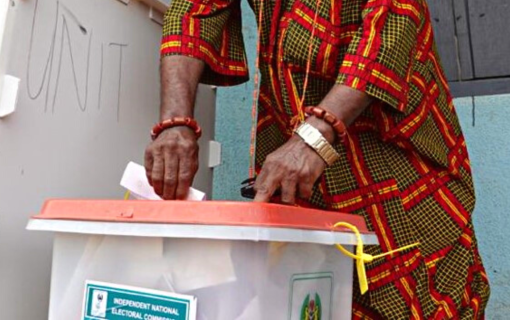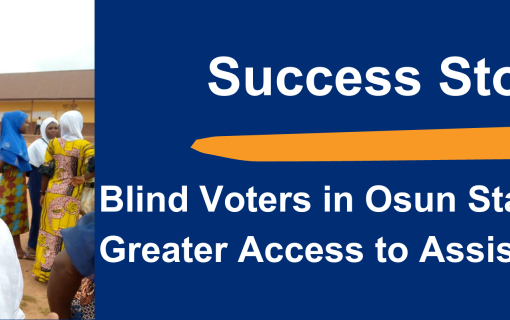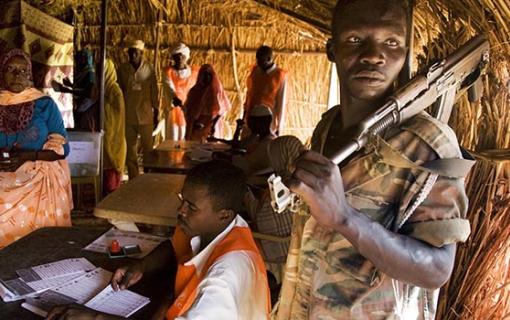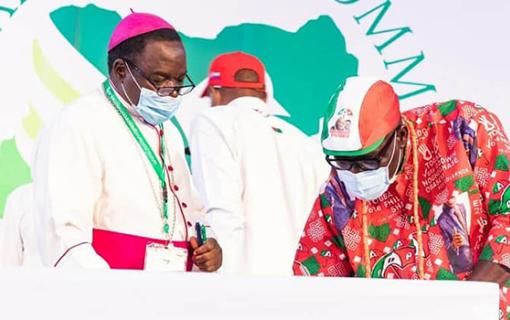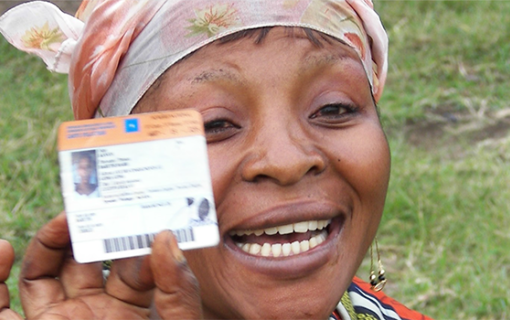Nigerians Optimistic About Future, Despite Election Criticism
Washington, DC – August 15, 2007 – Nigerians are optimistic that their new leaders will make positive changes in their daily lives, even as they question the conduct of the April elections, according to a new report from IFES. At the same time, Nigerians remain committed to holding elections, with a majority saying that elections provide citizens with a rare opportunity to have a say in their government.
The report compares the results of two public opinion surveys that IFES conducted in February and May in each of Nigeria’s 36 states and the federal capital territory. The sample size for each survey was about 2,400 people with a margin of error of plus or minus two percentage points.
The post-election survey indicates that almost all of Nigeria’s institutions received a boost in public confidence after the elections, Nigeria’s first transfer of power between two elected civilians. The Independent National Electoral Commission, or INEC, was a key exception, losing 15 percentage points. At the same time, roughly six in 10 people surveyed in May said they still have at least a fair amount of confidence in INEC, with just over half saying that INEC is effective in carrying out its duties.
Despite domestic and international criticism of the elections, the number of respondents who said that elections are the most effective method for selecting leaders rose slightly between surveys (75 vs. 71 percent) and many more (58 vs. 46 percent) said elections give ordinary Nigerians an opportunity to influence decision making.
Other findings from the post-election survey include:
Dissatisfaction: Two thirds (67 percent) of Nigerians are dissatisfied with the current state of their country. Poverty, unemployment, inadequate public utilities and corruption are top concerns.
Presidency: An equal amount (67 percent) believes that President Umaru Yar’Adua is likely to make improvements in these daily concerns.
Other Institutions: Three-fourths (75 percent) of Nigerians express confidence in the military, a 23 percent jump from February. Confidence in courts saw a similar increase.
Election Conduct: Almost half (49 percent) say the elections were not too or not at all free and fair, while a similar amount (47 percent) says they were at least somewhat free and fair.
Public Influence: More than three in four (77 percent) say that in between election cycles there is no way for ordinary people to have their voices heard.
Political Parties: A large majority (81 percent) recognize that political parties are important in a democracy, yet only 18 percent think most major parties have clear proposals for addressing the country’s most pressing issues.
CONTACT: Laura Ingalls in Washington, 202-350-6729, lingalls@ifes.org
# # #
IFES is an international, nonprofit organization that supports the building of democratic societies.




